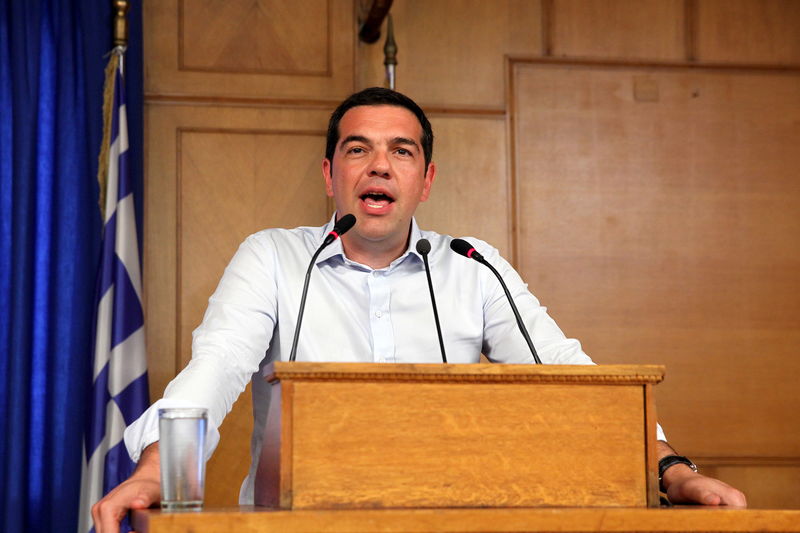ATHENS (Reuters) - Prime Minister Alexis Tsipras said on Wednesday that Greece was close to concluding a deal with lenders on a multi-billion-euro bailout, which he said would end doubts over its place in the euro zone.
The comments were the latest in a series of unusually upbeat assessments by Greek and European officials of progress in talks towards up to 86 billion euros (£60 billion) in fresh loans to stave off the country's financial ruin and economic collapse.
"We are in the final stretch," Tsipras said. "...Despite the difficulties we are facing we hope this agreement can end uncertainty on the future of Greece."
An accord must be settled by Aug. 20, when a 3.5 billion euro debt payment to the European Central Bank falls due.
Both sides have said such a deal is possible, although the European Commission described the target as ambitious, suggesting much remains to be done.
Discussions between Greece and representatives from the IMF, ECB, European Commission and the euro zone's bailout fund, the European Stability Mechanism, started in the last week of July.
Tsipras, who was visiting the agriculture ministry, said the process should also potentially include the European Parliament, indirectly alluding to past complaints over the legitimacy of demands from lenders.
"It should at some point be under the control and monitoring of the European Parliament, a democratic institution which has accountability," Tsipras said.
Over the next two weeks Greece must conclude loan terms, or at least secure a bridge loan. It received a bridge loan last month to cover its immediate financing needs.Greek officials say the country wants a full bailout immediately rather than a bridge loan.
"We will not accept new prior actions (reform conditions in place) in order to have a small bridge loan," Nikos Filis, parliamentary spokesman for Tsipras's Syriza party, said on Wednesday.
"We want one final deal to be signed and then we will see what is needed to have a disbursement of 25 billion euros as the first instalment."

Greek media has reported up to 10 billion euros of the first tranche of bailout aid could be channelled to banks, which urgently need recapitalising after mass cash withdrawals earlier this year that culminated in capital controls.